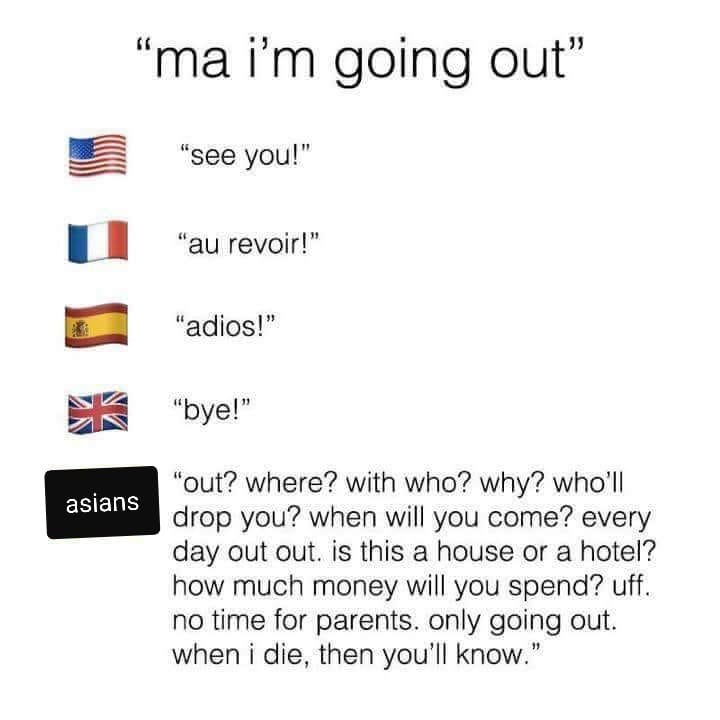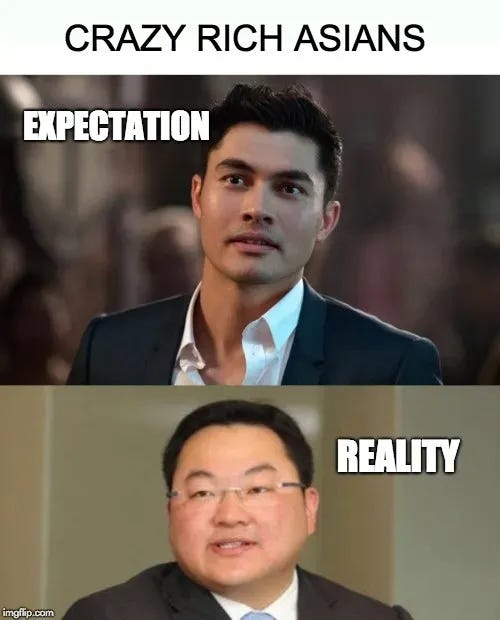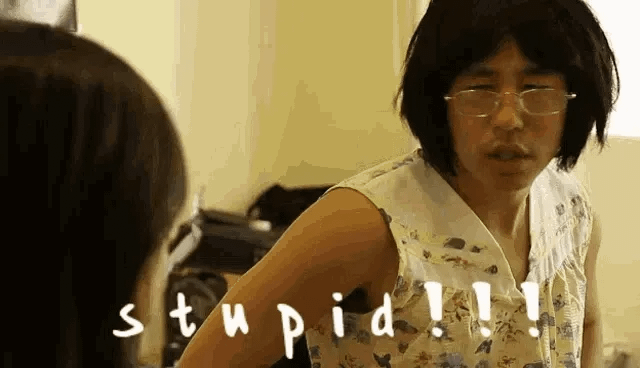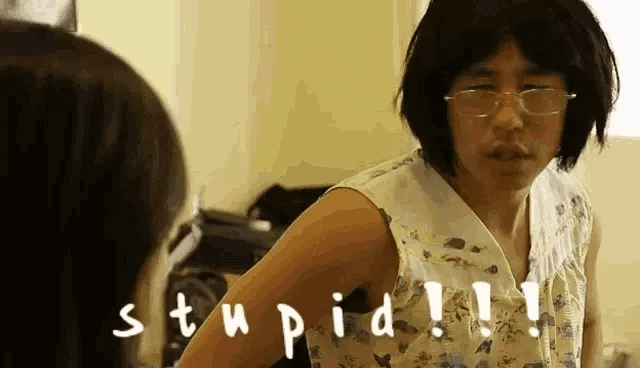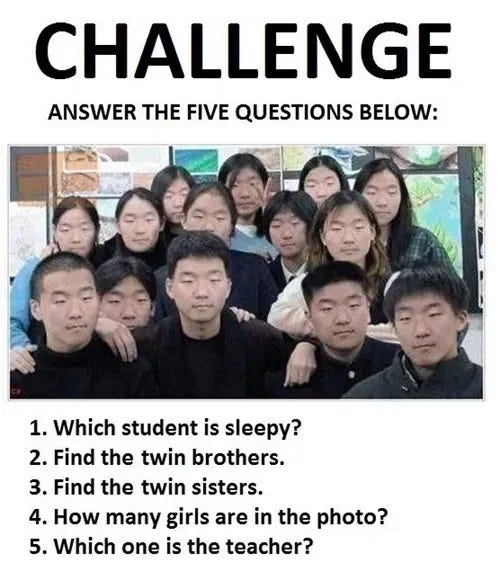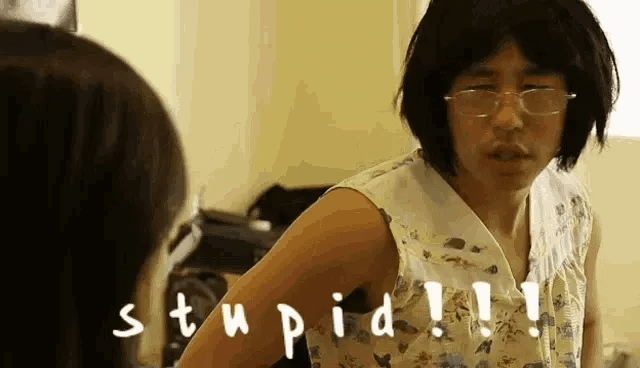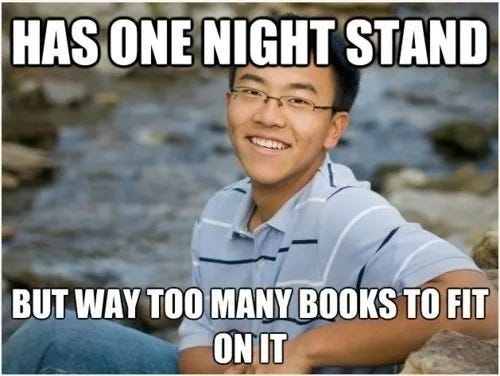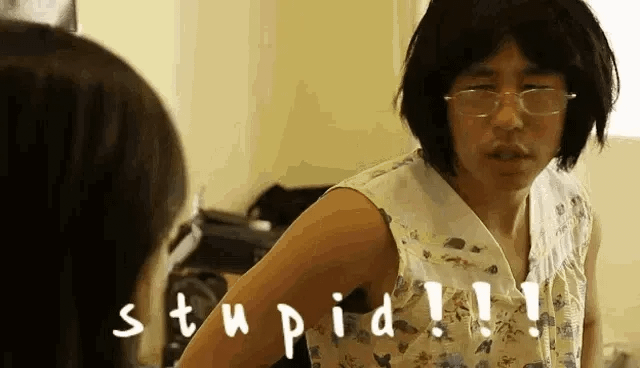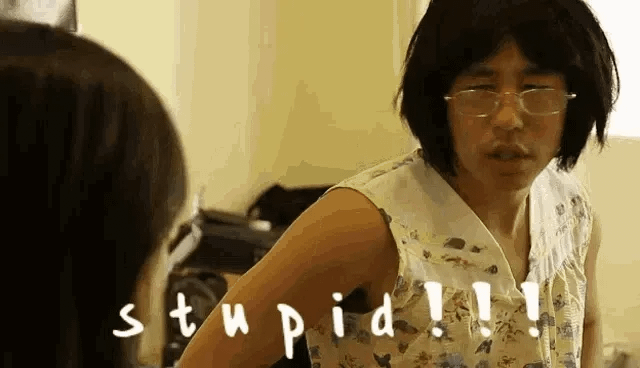My name is Winston Wu. I am a Taiwanese American who grew up in California.
This article critically describes the East Asian characteristics of repression, inhibition, stiffness, strictness, conservatism, solemness, insular worldview and judgmental thinking.
No one else has the guts to say the truth the way I do. All the others cater to the politically correct mainstream.
They say only polite, non-controversial things about every culture, like the Travel Channel does, such as "The culture is amazing. The people are so friendly. The food is so good!" Blah blah blah.
But I've never been into political correctness nor do I have an Asian need to "save face".
I am the antithesis - a Renaissance man, eclectic, free-thinker, philosopher, writer, existentialist, adventurer, spiritualist and lover of beauty, pleasure and women.
🍋 Asian black-and-white “proper” ways
In Asia, there is this cultural black-and-white thinking that strictly dictates that there is one “right way” of doing things, and all other ways are “wrong ways”.
In their belief system, everything, especially people, must be strictly controlled and regulated through “proper ways” of behaving.
Any deviation from these “proper” ways must be corrected or else “all chaos will erupt”.
If you deviate from their strict notions of the proper and right way of doing things, even in little things, many Asian people, including non-family members, will be quick to try to correct you and fix you, as if it were their second nature.
And they do it in a preachy righteous tone!
🍋 Control freak attitudes and behaviors
Controlling and correcting others is in their instinct, as if they live and breathe it.
It’s simply “the way” they’ve always done things and not to be questioned.
They aren’t a freethinking society, but rather a “follow the right way” society.
Rarely do they just let loose and party, and even if they do, it’s strictly controlled and kept within a short time frame, so that it doesn’t get out of hand.
This obsessive, controlling nature is strongest in the relationship between parents and their offspring (which outsiders don’t always get to see, for many families hide their control freak nature from outsiders in an attempt to “save face”).
Asian parents are constantly controlling and correcting their children over every little thing without end.
They are constantly labeling everything to them in black and white categories such as “dweh” (right) and “buh-dweh” (wrong), thus instilling in them a black-and-white worldview.
Asian parents use anger, threats and fear to manage their children.
There is this fear that if their children are not sternly and tightly controlled, then chaos will erupt and “the whole family will go down the drain”.
Thus, the parents and the children both live in fear, and thus tend to use negative reinforcement.
One harmful effect of all this is that it contributes to their insecure state of constantly living in fear of criticism.
Rather than empowering them with self-confidence, it weakens their worth by subjecting them to excessive control, negative reinforcement and fear tactics.
As a result, Asian children tend to pass on such strict controlling ways to their own children of the next generation, and the cycle repeats.
One of the ways to break it is, of course, by becoming a free spirit and freethinker who can […] choose his/her own path and behavior rather than following that of society like a robot.
But of course, those Asians who dare to be different will risk alienation from many of their ethnic kind, and find that many Asian cliques will exclude them.
For to them, following the pack is normal, whereas thinking on your own is seen as freakish, dangerous, unstable.
In addition, they also tend to have this annoying habit of talking to you like you don’t know anything, even when they have no idea what you really know.
“Cranky, petty, neurotic and anal-retentive” - r/AsianParentsStories
READ ALSO: Asian lecturing mentality affecting mental health
🍋 A perpetual anger
The Chinese in particular seem to have this perpetual anger.
When you watch them interact in public, you notice a high occurrence of this angry tone in their voice, as if they’re always arguing, even in casual conversation. And often in a self-righteous tone as well.
Even East Asian movie stars have this perpetual angry look about them.
For example, Bruce Lee had that angry look and personality, as well as Jet Li (in his older movies), and even the sexy Lucy Liu displays such traits in her expressions.
The best way I would describe it is as an “angry strictness” that is quick-tempered.
There seems to be this inherent fundamental strictness in their basic personality and nature.
I wonder if it’s cultural, or perhaps it’s inherent in Chinese genes.
Being angry all the time certainly doesn’t fall in line with their Buddhist and Taoist traditions.
🍋 To Asians, the basic rules of life are simply as follows:
The purpose of life is to be a virtuous workaholic, laboring long and hard to be secure and “successful” in life.
Even after you become successful, wealthy or financially independent, you should still continue working long and hard for the rest of your life to remain a virtuous person, or “just because” that’s how Chinese people like it.
One is permitted to have enjoyment and pleasure in life, but only for brief moments. Such must be strictly limited and controlled, lest they destroy society and make everyone lazy and idle.
When you are too old to work hard, then you may start enjoying life, relaxing and traveling, somewhat, but only in an inhibited, “proper” way.
There is a right proper way of doing everything. If anyone deviates from it, they must be fixed, corrected, and controlled into doing it the right proper way.
They are strict conformists to society who obey authority, and thus feel uncomfortable around freethinkers.
To them, the purpose of life is to work hard and long, suffering during the process, in order to be successful and make money.
There’s a certain honor and glory in being a workaholic in their eyes.
That’s what they live and breathe. They don’t know how to live life any other way.
And this even includes those who are rich or financially independent.
They are pure conformists with no independent thinking.
They are very simple and can only talk about simple practical things. Even among the educated Asians, there is still no independent thinking
There seems to be a rigid singularity in their mentality and train of thought. It seems that they view things from a 2 dimensional thinking pattern.
Note: Please do not accuse me of generalizing. Over 99 percent of Asians are pure conformists and followers who strive to be ALIKE, not different. Therefore, it is accurate to generalize them, since they already “generalize themselves” by strictly conforming to societal standards.
🍋 They measure everything by its practical worth
[…] Even in the USA, when my parents’ Taiwanese friends learned that my dream was to pursue acting, they quickly discouraged it, labeling it as “useless and impractical” because such a path leads to an unstable income or little or no income at all.
[…] To them, making money is a practical value that is of far higher importance than love, passion or following one’s heart.
[…] the matters of the heart and soul are of a dimension that aren’t part of their shallow materialistic paradigm.
To me, that’s just insane. I've always believed that the purpose of life is to enjoy it.
And if you don't, then it's a wasted life, no matter how much you attain materially.
In short, I'd rather be broke doing what I love, than make a good living not doing what I love.
[But] Taiwan, like other Oriental countries, is a robot society engineered strictly to make money and fuel the world’s economy.
[…] They “live to work” so no matter how well-off they are, their purpose of life is still to work hard, even if they’re already rich.
And thus, its citizens become like busy-bee ants laboring perpetually for that purpose.
🍋 Four characteristics of Asians (J.A.S.C.)
[…] They typically exhibit these 4 unpleasant characteristics:
J: Judgmental (Black-and-white mentality)
They are quick to judge and jump to conclusions, even about things they aren’t qualified in and know nothing about, especially about people who are different than them.
They fear the unknown […] Rather than listen and ponder a situation they don’t understand, they prefer to judge and lecture others, often in an overly righteous tone […]
A: Angry (Quick-tempered)
Their voice sounds like they are perpetually angry. And no, that’s not just “how they talk” as some try to excuse it.
It reflects a deeper nature of theirs, which is evident by how quick-tempered and excited they get over little things.
S: Strict (Uptight)
They are very strict, anal-retentive and militaristic in living and pushing upon others their black-and-white view of what’s right and proper, even in little things […]
Even if their “proper” way is illogical or inappropriate for the situation, or unnecessary, it’s all they know and so they will still follow it simply because “it’s the way”.
C: Controlling / Correcting
They have this obsessive propensity to control and correct others. […]
Particularly […] Chinese tend to speak with this preachy overly righteous tone. They seem to have no respect for your opinions, nor do they try to see your side.
They often point out faults in a preachy condescending manner, using fear and negative reinforcement. They will do this even over trivial things that do not matter.
For brevity's sake, we will term these four characteristics above as JASC […]
These JASC characteristics typical of many, if not most Chinese, can make being around them a stressful experience.
🍋 Repressive precepts of life taught from birth
In East Asian families, children are taught from birth the following primary life precepts:
One’s sole purpose in life is to perform one’s duty diligently.
When you are a student, grades and test scores are the measure by which to judge your self-worth and status in society, as well as the “honor” you give your parents. Bad marks make you “lose face” to yourself and your family.
And when you are an adult, your career status and salary become the basis of your value and status.
Therefore, in essence, you value is determined by how well you do your “duties”.
Nothing else in life outside of your “duties” has any real value or meaning. […] everything else is useless and idle, therefore one should not have too many other interests or distractions.
A person has little worth beyond how he performs his “duties”, whether as a student, worker, parent or child.
Nothing exists outside of conformity to the system. Obedience and conformity are the keys to prosperity and harmony in life.
Anything that contradicts the above is immature, irrational and silly child’s play.
They have definite standards of the way things “ought to be”, leading to close-minded value judgments on anything that doesn’t fit in.
They are taught that nothing that doesn't have practical benefit is worthwhile, but instead, useless and idle.
Therefore imagination, creativity, abstract thinking, philosophy, etc. are discouraged and made irrelevant, unless it aids one in their study or work.
Also, intolerance for differences is stressed, as well as new ideas that don’t fit into the “one’s purpose in life is to do their duty in school and work” life precept.
Needless to say, Asians who try to become actors, musicians, or live a Bohemian lifestyle draw the most heat from their parents, who have a JASC mentality that refuses to allow anything to exist outside the conservative life precepts.
[…] The rigidity taught in their thinking make them excel at mathematics courses, […] business and high tech fields.
Of course, the trade-off for them is the benefit of specialization, for if you only focus on one thing and put your energy toward it, you are much more likely to succeed and excel at it.
That much is true, and it's partly why Japanese companies are so successful.
But the downside of all this, of course, is that it makes them:
narrow-minded, rigid, with a one track mind
uninteresting to others
having few interests and things to share with others
unable to relate to or get along with those who are different from them.
Therefore, this single-mindedness approach does have its benefits.
But it creates people that I just don't relate to, am not attracted to, don't admire, don't want to emulate and don't find interesting.
They learn to feel pleasure in living a routine rut, and see nothing outside of it anyway.
Contrary to the Western stereotype of Asians being into Eastern mysticism, Taoist philosophies, Buddhist practices, Yoga, Martial Arts, etc. the Asian mindset is actually overly shallow, materialistic and one-dimensional.
Daughters are told that a man’s riches are all that matter
Men are taught that their career and wealth determine their worth
Children are taught to live and breathe their school and grades or else they will become terrible monsters
People are taught that there is only one right way to do everything, with no room for disagreement
[…] There is no room in the Asian paradigm for thinking outside the box, imagination, creativity, romance, spiritual life, etc.
The esoteric and mystical groups that are popularized in the Western media are fringe practices held by a minority of Asians, and not part of the mainstream mentality at all.
🍋 Obsessive-Compulsive control nature
There seems to be an inherent nature in East Asian people to be very petty and anal-retentive even about the smallest things.
It's like some of them don't feel alive unless they are petty or anal about SOMETHING.
This control freak tendency is a pattern I've noticed among my family and relatives, and others have commented at length too.
It’s also no wonder that a high percentage of Asian Americans have some kind of OCD (Obsessive Compulsive Disorder).
To get an idea of what I mean about the extremity of traditional Asian repressiveness, imagine Pat Robertson, Jerry Faldwell and Pat Buchanan all put together, but much more tight-assed, anal and obsessive about little details, and that's what I'm talking about here.
[Chinese] parents have this habit of controlling their children throughout their lives to an obsessive compulsive degree:
asking them about every little thing
telling them what to do on every aspect of their lives, even those they don't know anything about or aren't qualified to judge on
checking up on and double-checking on every aspect of their lives, etc.
This level of control can turn children into zombies, totally unable to do anything for themselves, and never becoming independent.
🍋 The Asian parental lack of respect for privacy
For instance, my parents become very offended if I utter the phrase “It’s not your business” while they are asking me intrusive questions.
In their mind, everything in my life, including my secrets and personal affairs, are “their business.”
And as such, they feel compelled to interfere and cast judgments.
For some reason, Asian elders and relatives feel the need to give you unwanted, simplistic, and obvious advice.
[…] In Western culture, it is rude to give unasked advice to others, even if they are your relatives.
But Oriental relatives and elders do it simply because it is “their way”, handed down from generation to generation.
Somehow, these people feel it is their duty to give you simplistic advice […] and make themselves feel useful in doing so.
[…] they will continue repeating something that is harmful or causes conflict, out of tradition, rather than change it.
In short, they will repeat something over and over again that doesn’t work, out of tradition, rather than try a different tack. […]
🍋 It seems to be an “Asian thing” to argue about petty trivial issues
The Asian inclination for obsessive control and pettiness somehow drives them to try to control the most trivial things.
[Anyone knows that] arguing over trifling petty things is a waste of time and energy, but for some morbid reason, the Asian mentality persists on it, perhaps even feeding off it.
[…] You’d think that people have the common sense not to keep repeating the same methods that lead only to negative results and endless arguing.
But not in the Asian mentality.
Instead, they prefer to repeat cycles of fruitless arguing over and over.
Asian mentality does not seek to change tactics when negative results occur, but prefers to rigidly stick to the same ways even if they don’t work.
🍋 Circular reasoning within a closed loop
Asian mentality operates in circular reasoning within a closed loop, not acknowledging anything outside of it.
It does not seek to expand or broaden itself, but only to maintain its insular nature by repeating its mantras to further reinforce itself.
Any attempt to expand it, reason with it, give it a new perspective, etc. is usually futile and results only in the tightening and reinforcement of the closed loop.
You see, the Asian paradigm does not seek to grow or understand, but to strengthen its set preconceptions in regard to order and hierarchy.
Thinking out of the box is not allowed nor even acknowledged as possible.
[…] The Asian mentality does not seek to be rational, but only to reinforce its closed loop ways.
It’s illogical to continue using failed tactics of course, but it’s simply the “Asian way.”
It’s in their upbringing, nature, and possibly genes as well.
It’s odd that they do this, when their cultural and historical idols, such as Buddha, said that nothing in extremity is any good.
So much for the influence of Buddha, Taoism, and Eastern Mysticism on the mainstream Asian populace.
EXAMPLE: My mom has yelled at me for things with unrelenting anger.
What’s ironic is that she is a devout Buddhist, so when I point out to her that Buddhism teaches non-attachment and non-judgment, and that Buddha himself would never approve of being controlling and angry over little things like she does, she spins it around by saying,
“Buddha also strictly emphasized that one must do things the RIGHT way!!!”
Like I said, you can’t logically reason with their illogical black-and-white behavior.
To give you a great example of what I mean, here is an account from a Korean American who describes in detail the obsessive compulsive over-controlling condescending nature of her mom:
”Hi! Great to hear back from you... Well.. she’s done a lot of the things you mentioned on the site...
She tells us (3 daughters) how to eat and what to eat. "Don't eat that alone - you have to eat it with rice."
She believes that anyone that's younger than her doesn't know better than her and also doesn't deserve respect from her since she's the older person
She feels that if you voice your opinion then you're being disrespectful
She also feels that if you disagree with what she's saying you're supposed to just sit there and "accept" it and not say anything back
She feels that Koreans are superior to any other race
She feels that women should find a rich man and be with him solely for that reason
She thinks money is the most important thing in life
She thinks that being a doctor or lawyer are the only two professions that anyone should try to pursue
The other night, a Saturday (keep in mind I'll be 28 next month and work full time and go to school full time at night and basically handle all my business without giving my parents any
burden). I was out on a date - She called my cell phone numerous times and was leaving me messages like "That's enough-it's late and you need sleep." It was so embarrassing to have my date wonder who in the world was calling me so persistently.
I basically told her to stop calling me every single time I go out and quit worrying about me since I was almost 30 years old. She yelled back and said "I'll call you 100 times if I want - you can't tell me what to do etc etc"[…]
Let me know what you think about this craziness..
Victoria”
Such perpetual condescending treatment and verbal abuse from repressive Asian parents can make one feel incompetent and dependent.
But as mentioned, the Asian mentality is extremely, obsessively controlling, negative. There’s almost no changing it.
🍋 An Asian society is organized vertically.
Order goes from parents to children, government to subjects, teacher to students, etc
In [the West], horizontal relationships like working together, exchanging opinions, doing business as equals, etc. are stressed.
In [Oriental] societies, vertical, authoritarian relationships are stressed.
When you have conversations with people from Europe for example, they display a broad knowledge and are well versed in many topics.
Asian students are not like that at all. They don’t seem interested in intellectual things or knowledge, and almost no one displays any curiosity.
Taiwanese students do not study out of interest or curiosity, but out of FEAR from parents and society who judge their self worth and value by it, threatening to shame them by making them “lose face” if they don’t do well.
Because they study out of fear and guilt of duty, most Taiwanese students who study for hours every day still have little knowledge about things.
And this is obvious just from conversations with them.
🍋 Condemnation of what you don’t understand – the East Asian way
Theee Oriental way of dealing with what they don’t understand in people, especially their own kind and even more so their own family, is to condemn it, claiming that it is wrong, doesn’t fit what “ought to be”, should be fixed/changed, etc.
Not only do they have this narrow absolutist mentality of how things “ought to be”, but they are not open to discussion and hearing feedback to revise their perceptions.
That’s simply "how it is”.
Although non-Oriental cultures have condemning views as well, they are not as quick, petty and snappy about it as Orientals are.
These judgmental Orientals do not do what soulful exploratory people do, which is trying to understand those who are different than you, by putting yourself in their shoes, asking open-ended leading questions, listening to feedback, affirming other people’s feelings, etc.
🍋 One track mind toward work and routine
According to Confucian values, work is a “virtue”, and Oriental societies have taken that to heart to the extent that they live and breathe it.
Also, there is the Confucian belief that suffering is a virtue too, so to “suffer” while working is considered good for you, and hence many Chinese employers enjoy seeing their workers toil and suffer.
They don’t care that this completely prevents them from developing themselves in other ways, mentally, physically, spiritually, or culturally.
Perhaps they were conditioned to think this way by what the ancient feudal lords in China taught centuries ago, to serve the interests of the elite, and somehow they are still living by such outdated propaganda.
People are expected to conform to their duties and work hard, not think critically or in unconventional ways.
They believe that interests outside of work and school detract from the real function of life, which is to duty to work, school and family.
Some of the more extreme bunch also believes that having free time is a sin or bad thing, contrary to Western mindsets.
In fact, there is a common phrase in Taiwanese language used to describe someone who meddles in other people's business, and it goes like this "He/She has already eaten and has too much time on his/her hands”.
This implies and reflects the mentality that having free time to do the things you want is a bad thing.
No wonder why their potential is so limited. If you condemn having free time, then you condemn the individual’s ability to evolve, grow, and expand in his/her own way.
🍋 Asian bosses – stingy and sadistic
If you’re going to be working for an Asian boss or employer who harbors any degree of traditional Asian mentality, watch out! And try to find an alternative.
Asian bosses are well known for being VERY frugal and stingy when it comes to paying their employees and workers, or spending money on anything.
They often try to pay you as little as possible, and are notorious for trying to weasel their way out of paying you at all.
And they like seeking loopholes to use against you to deny you your pay, and you never know when they will do that.
Furthermore, they tend to have a sadistic desire to make their workers suffer, and love to overwork them too.
They see such suffering as a virtue attached to glory and honor, as if work is not worthwhile unless one suffers.
And they also feel that one’s duty should be to work hard for the mere sake of working hard, even if little reward or benefit is involved.
In their insular mentality, the ideal person lives and breathes their work, and if they don’t, then they are seen as idle and disloyal.
It’s the Asian way and mentality, very repressive, backward, unintellectual and sadistic.
🍋 Severe limitations of social life
And of course, there is a “proper way” to meet people, make friends, or get acquainted with the opposite sex, and that is by introductions through mutual connections.
The social environment does not flow freely at all, unlike many European, Latin or African countries.
Having to depend on introductions through others is very limiting indeed, but alas, it is the “proper” way to do things, and most Orientals in general are afraid to deviate from it (most of them prefer to “follow the pack” rather than think or do things their own way).
So, in Oriental countries (Chinese, Japanese, Koreans mostly) it takes time, effort, and luck to meet people by developing connections through the proper channels first, which is usually through school, work or mutual friends.
That means little of it is really in your control. You gotta mostly wait and hope you get lucky. […] Their romantic choices are strictly limited within their schools, work environments, and social cliques.
And since it’s improper conduct to talk to strangers in Oriental societies, or to even look at them, it makes it damn near impossible to “pick up” girls.
Generally, the Asian countries where people are much more comfortable and relaxed talking to strangers and are more approachable, are Philippines, Thailand, Vietnam and Cambodia.
But even in these countries, most people tend to “follow the pack” rather than think for themselves.
In regions like Malaysia and Indonesia, the people are gentle and passive, not as strict, controlling or angry prone as Orientals, but they are very conservative and abide by strict rules and customs.
🍋 The double-face of Asians/Orientals: What most White people don't see
Most White people don't see the other side of Asians and Orientals, which is the repressive controlling instinct and mentality that seeks to perpetually condemn, "fix" and correct those who are different from a set standard of Asian culture.
The reason is because Asians don't try to change White people, but other Asians who don't fit the mold of how Asians are "supposed" to be.
They view Whites as a foreign species to maintain a good "face" to – bowing and smiling gently to feign fake politeness.
[Whites] are not shown the repressive dominating intricacies of Asian corrective behavior.
Asians tend to act overly polite, gentle and kind to Whites, giving them a false impression, hiding their strict, rigid, repressive, verbally abusive, belittling side, which they prominently show to their own kind and especially to their own family.
It’s simply the traditional Asian way (or rather the Oriental way to be more precise; e.g. Chinese, Japanese, Korean), to fix what's different or what you don't understand, by condemning it and then trying to correct it so that it fits with their narrow and insular view of life.
Put simply, they don't believe in letting others be who they are, only in how they "should be".
And believe it or not, they even do this to other Asians they know nothing about, don’t understand, have nothing in common with even, and whose lives are none of their business!
The pettiness and single-mindedness of such people is simply part of their basic mentality and instinct, though some do rise above it.
But it gets to the point where I start avoiding Asian folks in general it is often awkward for me to be around other Asians.
🍋 “Solid family values”, a double edged sword
Taiwanese and oriental family values are perhaps unparalleled in the world in terms of their stability, loyalty and solidarity.
Divorce among oriental couples is extremely rare, perhaps the rarest in the world. Parents are always there for their children, and stay together through thick and thin.
Somehow, perhaps because of their silent, passive, non-expressive nature and lack of personality, personality conflicts rarely arise in Oriental couples.
They seem to have such a dedication and commitment to each other that supercedes any self-interests, personality clashes, or chemistry issues between them.
And children tend to take care of their parents as well, even into their adulthood.
It is not uncommon in many Oriental countries for children to live with their parents throughout their lives, even opening up a business under their home on the street for all to manage, which is extremely common in cities and towns in Asia.
However, there is a downside to this.
When families are this solid and unbreakable, it also means that the children feel a sense of obligation and duty to always live near their families, preventing them from moving away to a place more suited to them with better opportunities.
Thus, their potential is severely limited, out of a sense of guilt and obligation toward their parents, who will instill them with this too.
Unlike Western cultures which emphasize the needs and potentials of the individual, Asian cultures tend to prioritize the needs of the family and society over the individual.
Hence their lives are like a prison without freedom.
Source: Winston Wu





